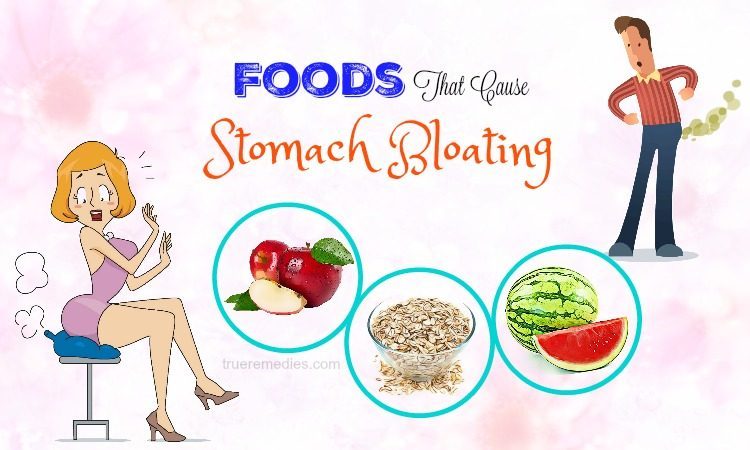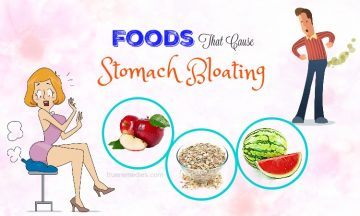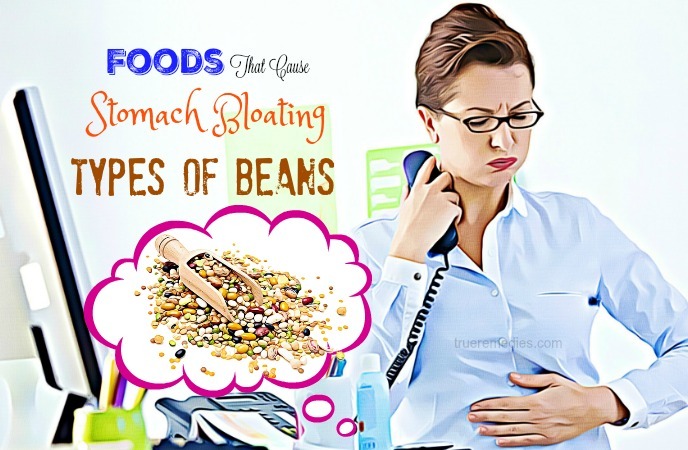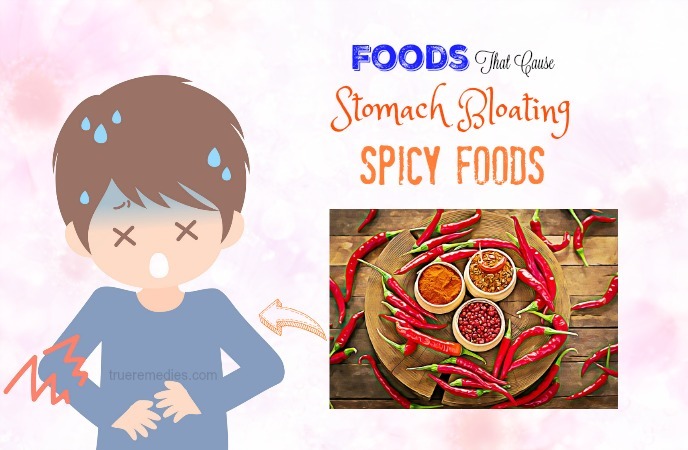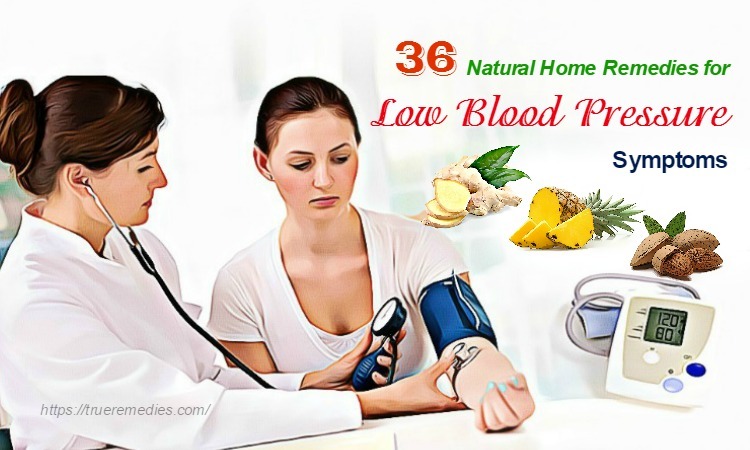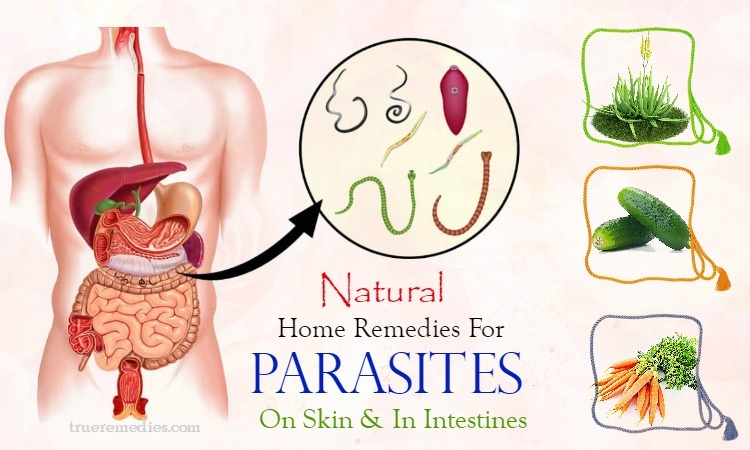Updated: 11/01/2019
Contents
According to Dr Le Thanh Toan, working at the University of Medicine and Pharmacy, Ho Chi Minh City, flatulence and bloating are very common health problems, but people should not completely ignore. In addition to digestive disorders, flatulence and stomach bloating are also signs of many dangerous conditions such as gastric ulcers, gastroesophageal reflux, pyloric stenosis, or even stomach and duodenum cancer.
Do you often have bloating? There are many causes of stomach bloating, from benign causes like lactose intolerance to more serious causes like cancer. But, how do you know if your stomach bloating is just a minor problem or is a sign of a more troubling problem? And what are foods that cause stomach bloating?
Many people said that they often experience the phenomenon of flatulence and discomfort in the stomach, especially after a heavy meal, the feeling of discomfort in the abdomen increases. You need to check your diet and other types of food before you suspect you may have a digestive system disease. Today, eating requires consumers to have the knowledge, even to become smart, scientific eaters to have the best health, which ensures their labour or study. There are many foods providing substances that stomach acids are difficult to metabolize and then accumulate in the stomach, which will cause indigestion. So, what are those foods?
- 36 Effective Home Remedies For Lactose Intolerance Pain & Attack (Medically reviewed/ fact checked by Dr. Millie Lytle ND, MPH)
- 30 Natural Home Remedies For GERD Pain In Children & Adults (Medically reviewed/ fact checked by Heather M. Duquette-Wolf, RD, CSSD)
I. Top 13 Common Foods That Cause Stomach Bloating And Gas
1. Types Of Beans
This is the first common food in the list of top 13 common foods that cause stomach bloating and gas. Beans are known as foods that cause stomach bloating because of their high levels of vitamins, minerals, and vegetable proteins[1]. However, most beans contain a sugar called alpha-galactosidase, belonging to a group of carbs called FODMAPs. FODMAPs (fermentable oligo-, di-, mono-saccharides and polyols) are non-digestible short-chain carbohydrates and are then fermented by intestinal bacteria in the colon. Bloating gas is a by-product of this process[2].
TrueRemedies Partner Solutions

Need a Help from the Leading Expert Online, Available 24/7?
They’re all here and ready to answer your questions online or by phone. Keep asking questions until you get the answer you need.
- For healthy people, FODMAPs are simply fuel for guts and do not cause any problems. However, gas will be formed during fermentation in people with irritable bowel syndrome. This gas can be uncomfortable with symptoms such as bloating, flatulence, abdominal distention, and diarrhea[3].
- Starch is an indigestible fiber in the bean’s outer shell. To reduce abilities to get stomach bloating, when eating beans, you can soak dried beans overnight. Water will break down some of this starch, thereby making the starch go to the large intestine.
In addition, they are rich in sugar and fiber as complex stachyose and raffinose – the two complex sugars that our body cannot digest. Therefore, instead of trying to digest them, our bodies let the bacteria process them from that gas. There are some types of legumes that are easier to digest, such as pinto beans and black beans, especially after soaking[4]. You can also substitute beans with cereals, meat, or quinoa.
2. Milk And Dairy Products
They are the foods that should be mentioned in this list of foods that cause stomach bloating. Milk And Dairy Products has the effect of causing stomach bloating and gas. Lactose intolerance is a common problem of about 20% of the world’s population, which is the cause of stomach bloating[5] [6]. This is one of the most obvious diseases in children; children often go to the toilet, abdominal pain, or “deflated” after drinking milk. It is because the stomach does not produce an enzyme that helps digest lactose. Lactose-free products such as milk and dairy products (cream, yogurt, butter, sour cream, and cheese) are recommended to be used instead of milk and dairy products. Also, take calcium supplements such as dark green vegetables, shrimp, crabs, cauliflowers, etc.
3. Whole Grains
Among the foods that cause stomach bloating that this article mentions, whole grains are the most noticeable foods. Whole grains also act as stomach bloating agents. Because whole grains are usually composed of high carbohydrate vegetable fibers, they are often harder to digest than others. When this fiber reaches the colon, the bacteria associated with them cause fermentation to release the gas. Limit consumption of foods such as crackers, bread, and whole grains to avoid bloating[7].
4. Vegetables Having Indigested Sugar
Some types of vegetables such as bean sprouts, celery, asparagus, Brussels sprouts, leeks, onions, cauliflower, cabbage, and broccoli often contain sugars that are difficult to digest in high concentrations. Cruciferous vegetables such as broccoli, spinach, kale contain carbohydrates FODMAPs, a substance that produces gas in the stomach that causes flatulence[8]. Although vegetables are rich in vitamin K, calcium and iron, we should not overeat. When these sugars pass down the colon, the gas is released as a by-product. You should limit the use of these vegetables when you are bloated. If you have stomach bloating after eating these foods, you can seek medical help.
5. Carbonated Drinks And Sodas
This is one of the foods that cause stomach bloating that few people know, but this true. When you drink carbonated drinks such as soft drinks, beer, etc. you will add to the digestive system of the amount of gas from the outside. This often causes the person drinking carbonated drink has to reduce gas emissions through the anus and causes heartburn[9]. Replacing soft drinks and carbonated drinks with water, tea or juice is a good alternative to health.
6. Processed Foods
The next one in this list of foods that cause stomach bloating is processed food. Packaged foods, processed foods, fast foods, whole grains or bread that contain lots of lactose and fructose. The combined use of these foods in all diets will lead to increased gas in your stomach[10].
7. Chewing Gums
Chewing gum usually contains more sorbitol, in addition to xylitol or mannitol. They are all difficult to digest, increase belching, and create gas in the stomach. The process of chewing gum causes us to swallow more saliva. It accidentally brings a large amount of air into the abdomen, causing stomach bloating. Chewing gum is like eating, but other foods are not put on the stomach. It causes excessive salivation, resulting in excessive acid in the stomach, ulcers, and stomach pain. Most types of gum contain mint; excessive use may cause an intestinal disturbance, causing digestive diseases[11] [12].
8. Apple
Apple contains plenty of nutrients and fiber, offering a lot of health benefits[13] [14]. However, when you eat an apple too much, your body will not absorb the sugar contained in this kind of fruit. The stomach takes time to produce enzymes that help the body digest. Therefore, it leads to the body producing gases in the stomach and intestines. The main cause is fructose (a type of FODMAP) and high fiber content. Fructose and fiber can be fermented in the large intestine, creating gas and filling the vapor. Cooked apples are easier to digest than fresh apples.
9. Watermelon
Among the foods that cause stomach bloating that you should know, watermelon is one of the most noticeable foods. Watermelon is a naturally sweet fruit that contains high levels of fructose. According to Greer, about 30-40% of us cannot completely absorb fructose, leading to stomach bloating and sometimes diarrhea[15].
10. Spicy Foods
This is also one kind of the foods that should be mentioned in this list of foods that cause stomach bloating[16]. This may be a small surprise when spicy foods are bad for our digestive system. It not only burns your throat. When it goes down the stomach, it also frees up stomach acid, thus causing stomach bloating.
11. Wheat
The opposite opinion about wheat has erupted over the years, mainly because it contains a protein called gluten. Wheat is still widely consumed. This is a component of most bread, pasta, tortillas, and pizza, as well as baked goods such as pastries, biscuits, pancakes, and waffles. For people with celiac disease or gluten sensitivity, wheat causes serious digestive problems including bloating, diarrhea, and stomach pain[17] [18]. Wheat also contains FODMAP, which causes digestive problems in many people[19] [20]. There are many foods that do not contain gluten like quinoa, buckwheat, almond flour and coconut flour.
12. Onion
This is one of the foods that cause stomach bloating that few people know. Onions are plants grown underground with a unique and intense flavor. We do not eat onions all the time, but they are common uses in cooked meals, side dishes, and salads. Although we usually eat very little onions, onions are one of the sources of Fructan level. These are soluble fibers that may cause stomach bloating[21] [22]. In addition, some people are sensitive or intolerant of other compounds in onions, especially fresh onions[23]. Therefore, onion is a cause of bloating and other digestive problems. Cooked onion may minimize negative effects on digestion.
13. Garlic
This is the last one in this list of foods that cause stomach bloating. Garlic is a widely used food because of its taste and therapeutic effect. Like the onion, garlic contains Fructans, a type of FODMAPs that may cause stomach bloating[24]. Allergy or intolerance to other compounds in garlic is also a common condition, with symptoms such as floating, itching[25].
II. Is Stomach Bloating Dangerous?
Frequent and unexplained bloating in the stomach can be linked to many dangerous health conditions, especially cancers.
- Irritable Bowel Syndrome
When you have long-term stomach bloating symptoms such as pain, constipation, or diarrhea, this may be a symptom of irritable bowel syndrome – a common gut disorder. Experts say cutting cereals and whole-grain foods from the diet may reduce the risk of bowel cancer by 30 to 40 percent. You should avoid foods such as bread, oats, instant cereals, candies, etc. to reduce the discomfort of the disease. In addition, naturally fermented yogurt may help your digestive system.
- Abdominal Gas
The culprit of this phenomenon is the carbohydrate-rich foods such as beans, broccoli, cabbage, plums, apples, or gum containing sweeteners that replace sorbitol, etc. They cause food in the digestive tract to slow digestion and release sulfur gas to make the stomach uncomfortable. It is recommended to eat slowly, chew carefully to limit bloating, flatulence.
- Celiac Disease
Celiac is an intestinal disease. The cause of the disease is gluten sensitivity, a protein found in wheat, barley, and rye, leading to inflammation and intestinal mucosal abnormalities. The disease occurs in people of all ages with symptoms such as diarrhea, fatty liver, malnutrition, vitamin deficiency. If you experience the above symptoms, see your doctor for a blood test for peptic ulcer. Experts advise that people with bloating and irritable bowel syndrome should test to diagnose diseases related to the gastrointestinal tract.
- Hormonal Change Due To Pregnancy
Premenopausal women or in the early stages of pregnancy may experience prolonged stomach bloating. Hormonal change is the cause of slowing bowel movement, which slows the digestive tract, leading to flatulence and constipation.
Exercise 30 minutes a day may improve this condition. In addition, you should drink plenty of water and eat fruits and fruits to improve the digestive tract.
- Ovarian Cancer
The symptoms of this cancer are quite vague, so most of the patients are only diagnosed when it is too late. If you experience persistent bloating, difficulty eating combined with urinary problems, you could get dangerous health conditions. You should go to the hospital for medical examination and diagnosis in time.
III. When To See A Doctor?
Patients should be aware of their gases in the stomach. Bloating accompanied by the signs and risk factors such as difficulty swallowing, weight loss, anal bleeding, and bowel disorders (especially in the elderly) is a serious condition. Then it is necessary to quickly go to specialized medical facilities for medical examination and treatment[26].
IV. Simple Tips To Relieve Stomach Bloating And Gas
- You should drink 1.5 – 2 liters of water a day, helping to release toxins from the body.
- Eat plenty of fruits and vegetables to provide a large amount of fiber for the body, which tends to discharge rapidly through the digestive tract, removing toxins from the body.
- You should supplement the vegetables prior to using garlic and some fruits such as orange, grapefruit, apple, pineapple, pear, and after high protein meals.
- When eating, eat slowly, chew carefully, and eat small pieces to avoid swallowing air and food into the stomach (causing gastric and other forms of indigestion). Limit food to sour, spicy, candy, pastries, etc. For people with heartburn or acid reflux, divide the meal into 4-5 small meals per day to avoid the pressure on the stomach. Limit talking while eating.
- Quitting chewing gum habit because it causes the stomach to accumulate more gas and aggravate bloating.
- Heavy drinking and smoking may cause nausea and increase the level of acid in the abdomen that may lead to acid reflux and heartburn. Therefore, avoid tobacco and alcohol.
- In addition, you can use the hands massage the belly to increase the movement of the stomach and intestines, which helps digest food better and avoid stagnant food for many days. There should be a light exercise regimen to increase normal bowel movement, such as walking, playing badminton, and breathing exercises.
- Walking is also a form of relaxation that eliminates stress. When it is long-term stomach bloating and frequent recurrences, it is necessary to go to a doctor for a specific treatment. Remember not to use the medicine without the doctor’s instructions.
More Information About Stomach Bloating
What Is Stomach Bloating And Gas?
Stomach bloating is a condition in which gas accumulates in the stomach and intestines, making you feel bloated and in some cases, your stomach may be tensed. This is a common phenomenon when the intestinal gas level increases excessively due to starch metabolism disorders or bacterial disorders of the digestive system. You may experience this bloating feeling once or many times a day. Stomach bloating symptoms relate to the gastrointestinal tract; although it is not dangerous but uncomfortable for patients.
What Are Common Causes Of Stomach Bloating And Gas?
Here are some of the main causes of stomach bloating:
- The most common cause of stomach bloating is chronic gastritis caused by Helicobacter pylori infection. In addition, it may be due to habits of unmanageable behavior, stressful psychology, nightmares, sleeplessness, or even high-intensity exercise, and inhaling too much air. Not only that, there are some cases of frequent and constant stomach bloating, patients go to the doctor to test stomach ulcers or even cancer.
- Eating plenty of starch while your body does not have enough enzymes to metabolize is a cause of stomach bloating. Eating too fast and drinking many stimulants (alcohol, beer, coffee, and cigarettes) are other causes of this issue. In addition, eating habits and some food or spices (onions, garlic, etc.) when eaten in the stomach creates acid reflux that causes lower esophageal spasm to cause belching.
- Due to gastrointestinal motility disorder, the gastrointestinal tract causes the stomach to be full of food and slow down the food digestion process, which makes digestion of food be difficult.
- Due to microbial dysfunction in the gastrointestinal tract, the food is not fermented enough, which causes food to become stagnant and fermented and create gas.
- Due to disorders of bile secretion and gastrointestinal motility disorders (gastrointestinal tract), the stomach is always full of food and slow down the food digestion process, causing difficulty digestion of food.
- Although 80% of stomach bloating comes from the stomach, it can also be from the liver. The liver functions to produce bile, which is then secreted into the bile duct system outside the liver and is secreted into the intestines to help digest fat and food. In addition to detoxifying function, the liver is also responsible for digestive function. Therefore, patients with liver diseases such as hepatitis, liver stones, liver abscess, and cirrhosis, etc. can also suffer from stomach bloating symptoms. In addition, the gallbladder with stones or inflammation also leads to stomach bloating and gastrointestinal disorders.
- Due to absorption disorders: There are no other causes of stomach bloating in children, except for due to disorders of absorption of milk (up to 40%).
- Stress is also one of the main causes of stomach bloating. When you are in a state of stress or anxiety, you will swallow a lot of air without knowing it. Constant stress also increases gastric acid secretion, causing stomach ulcers, flatulence, and indigestion.
- In addition, stomach bloating may also be due to patients taking certain medications that affect the normal physiological functions of the digestive system, such as medication for hypothyroidism treatment, medication for hypertension or medication for depression, etc.
What Are The Symptoms Of Stomach Bloating And Gas?
- You feel stressed stomach. This symptom is very common, even if you are hungry, your abdomen is still tensed.
- Uncommon abdominal and thoracic distress, anal or mild abdominal pain, which can spread to the chest. Patients feel gas goes slightly up to the chest, but they cannot burp.
- Whether hunger or full, patients do not feel the taste of food, leading to anorexia.
- It will be difficult for patients to digest food. Food in the stomach makes the patient rarely feel hungry.
- Repeated burping: The gas produced during digestion without escaping through the anus causes pressure the esophageal muscles and push them back through the mouth.
- There is often a feeling of nausea
- Defecate several times a day
- If the patient suffers from abdominal distension accompanied by other intestinal conditions, the symptoms will be more diverse than those with dull abdominal pain, constipation or diarrhea.
- Other symptoms of stomach bloating: repeated belching, heartburn, diarrhea, nausea or vomiting (caused by inflammation of the pyloric stenosis causing stagnation), abdominal distention, constipation, and uncomfortable feeling when burping and burning throat.
The above-mentioned are common foods that cause stomach bloating and gas. Everyone should know these foods to avoid overusing them when they have stomach bloating and gas. If you have any contributing ideas about our article of “Top 13 common foods that cause stomach bloating and gas” introduced in Superfoods Category, do not hesitate to drop your words below this post. We will answer as soon as we could.

